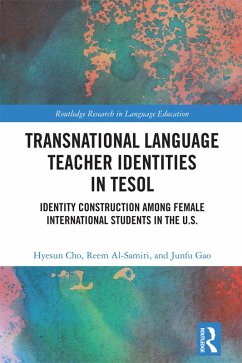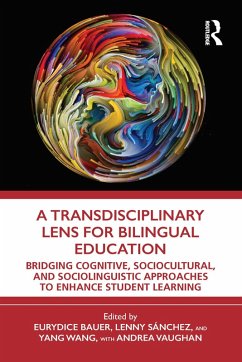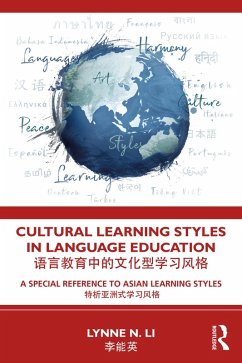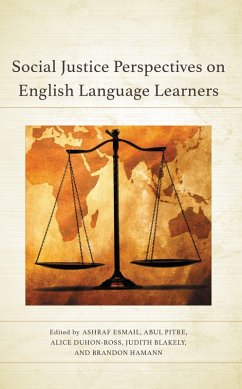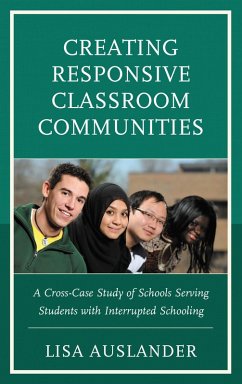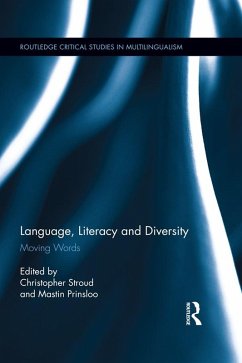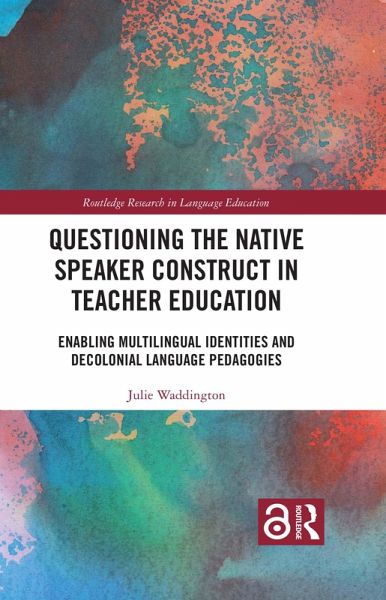
Questioning the Native Speaker Construct in Teacher Education (eBook, PDF)
Enabling Multilingual Identities and Decolonial Language Pedagogies
Versandkostenfrei!
Sofort per Download lieferbar
39,95 €
inkl. MwSt.
Weitere Ausgaben:

PAYBACK Punkte
20 °P sammeln!
Questioning the construction of the 'native speaker' as an authority and ideal in language education, this book offers a critical and accessible engagement with research problematising notions of 'nativeness' while emphasising the interactional and ongoing nature of identity construction.Crossing disciplinary and geographical boundaries, this book interweaves theoretical frameworks from diverse disciplines, examining and challenging language ideologies that underpin and perpetuate systemic inequalities. The author argues that this multidisciplinary approach can help disrupt the fixed identity ...
Questioning the construction of the 'native speaker' as an authority and ideal in language education, this book offers a critical and accessible engagement with research problematising notions of 'nativeness' while emphasising the interactional and ongoing nature of identity construction.
Crossing disciplinary and geographical boundaries, this book interweaves theoretical frameworks from diverse disciplines, examining and challenging language ideologies that underpin and perpetuate systemic inequalities. The author argues that this multidisciplinary approach can help disrupt the fixed identity categories on which the native speaker construct is based, prompting a reconception of how we think about ourselves in relation to others and in relation to our position in the world. Chapters present different teacher models as well as specific strategies and activities to stimulate debate and encourage approaches which prioritise pedagogical competence over the native speaker ideal.
Providing an accessible overview of complex issues along with strategic action in teacher education, this book will be of interest to researchers, academics, and postgraduate students in the fields of language education, applied linguistics, Teaching English to Speakers of Other Languages (TESOL), and teacher education. Teacher educators and language teachers should also benefit from this volume.
Conclusion of this book is freely available as a downloadable Open Access PDF at http://www.taylorfrancis.com under a Creative Commons (CC-BY) 4.0 license.
Crossing disciplinary and geographical boundaries, this book interweaves theoretical frameworks from diverse disciplines, examining and challenging language ideologies that underpin and perpetuate systemic inequalities. The author argues that this multidisciplinary approach can help disrupt the fixed identity categories on which the native speaker construct is based, prompting a reconception of how we think about ourselves in relation to others and in relation to our position in the world. Chapters present different teacher models as well as specific strategies and activities to stimulate debate and encourage approaches which prioritise pedagogical competence over the native speaker ideal.
Providing an accessible overview of complex issues along with strategic action in teacher education, this book will be of interest to researchers, academics, and postgraduate students in the fields of language education, applied linguistics, Teaching English to Speakers of Other Languages (TESOL), and teacher education. Teacher educators and language teachers should also benefit from this volume.
Conclusion of this book is freely available as a downloadable Open Access PDF at http://www.taylorfrancis.com under a Creative Commons (CC-BY) 4.0 license.
Dieser Download kann aus rechtlichen Gründen nur mit Rechnungsadresse in A, B, BG, CY, CZ, D, DK, EW, E, FIN, F, GR, HR, H, IRL, I, LT, L, LR, M, NL, PL, P, R, S, SLO, SK ausgeliefert werden.





